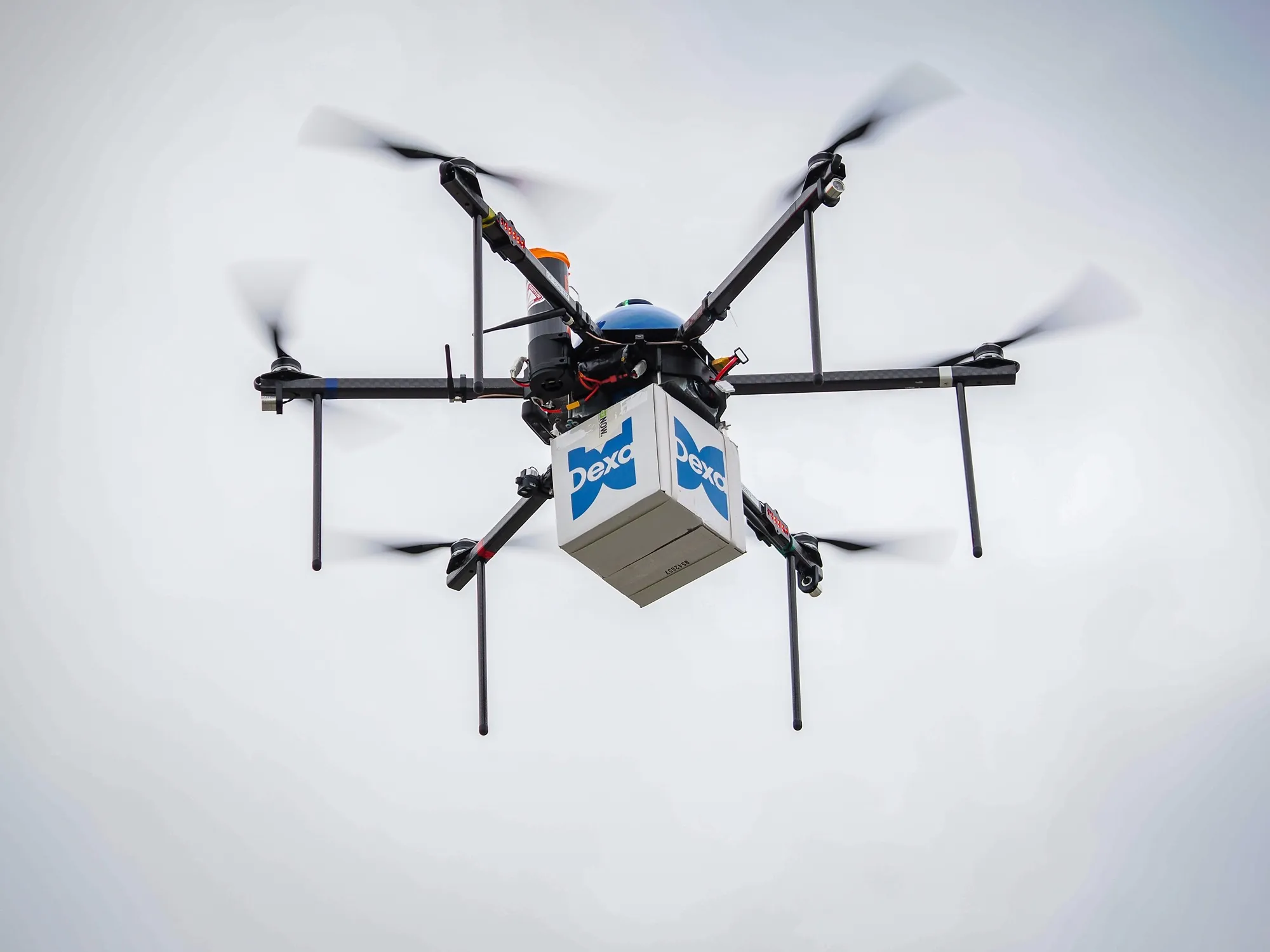
Dexa has received permission for its drones to operate beyond visual line of sight (BVLOS) without requiring any individual, case-by-case flight approvals from the FAA.
The approval, formally a “waiver”, comes from the FAA, the Federal Aviation Administration in the US.
Dexa - an autonomous drone delivery provider - said the waiver places the company among an elite group of drone operators cleared to scale commercial drone delivery in the US and is now one of a select few carriers cleared for national BVLOS operations.
"This nationwide waiver enables us to deliver on our promise of faster, smarter logistics in communities across the country," said Russell Kline, chief regulatory officer at Dexa. "It's the result of years of safety innovation, engineering rigour, and close coordination with the FAA."
Traditional commercial drone use without this FAA waiver requires visual observers to maintain line of sight contact with their drones.
A national waiver enables Dexa’s drones to travel long distances anywhere in the US without a pilot maintaining visual contact. This will dramatically reduce operational costs and open the door for large-scale commercial deployments, noted Dexa.
The company has received three FAA certifications and permissions:
- FAA Airworthiness Certification meaning DEXA’s purpose-built aircraft are commercially safe and reliable.
- Part 135 Air Carrier Certificate, a key requirement for companies operating drones for commercial purposes, particularly for BVLOS deliveries.
- National BVLOS Waiver eliminates the need for case-by-case FAA approval for long-range drone flights.
Beyond serving businesses, Dexa has built a direct-to-consumer marketplace where customers will be able to order groceries, over-the-counter (non-prescription) medications, pet supplies and more through rapid drone delivery, often within minutes, “direct to their physical location”.
Dexa said no address is required, similar to Uber where it knows where to pick up people needing rides. For $6 a month, users have unlimited deliveries to wherever they are at in-store prices, with no hidden fees or tipping (gratuities).
"The FAA's national BVLOS waiver is a milestone moment for our team," said Beth Flippo, Dexa CEO. "DEXA achieved these milestones and started operations with just $15 million in funding. Our commitment to first and foremost delivering a safe, secure, and reliable service has paid dividends, which we're reinvesting into our unique marketplace business model."
Dexa was set up in Dayton, Ohio, in 2021. The company designs and manufactures its own US-made DE-2020 hexacopter and operates an advanced delivery marketplace app, Dexa Now.









